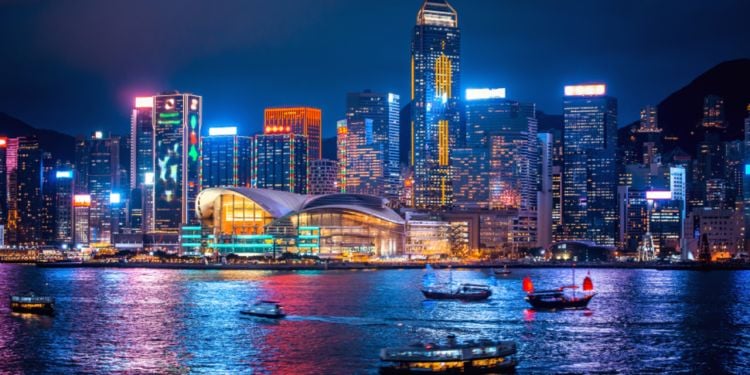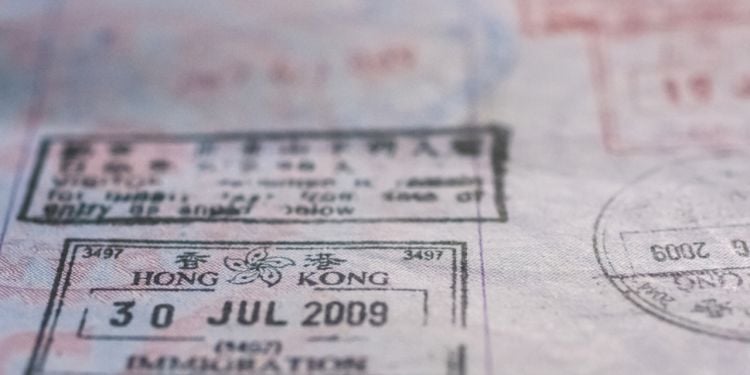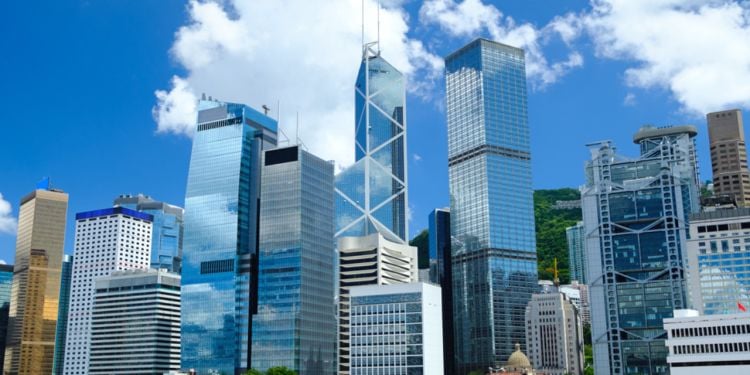Living in Hong Kong: the ultimate expat guide
Everything you need to know for a successful life in Hong Kong.
Located at the crossroads between the East and the West, Hong Kong is mainland China's richest city. Reflecting a harmonious combination of modernism with culture, it has become a choice destination for expatriation.
Nicknamed the "Pearl of the East", Hong Kong is a land of opportunities for expatriates thanks to its economic diversity and dynamism. It is also known to be the world's third financial hub.
Geography of Hong Kong
Stretching over some 1,100 km², Hong Kong is divided into three major areas, namely the Southern Island (only 10% of the region's territory but its political and economic heart, 80.68 sq km), Kowloon (a large residential area located right opposite Southern Island, 46.94 sq km) and the New Territories (comprising mostly wetlands, parks and mountains and accounting for more than 80% of Hong Kong's total surface area).
In political terms, Hong Kong consists of 18 districts, each of which has its own council. However, these councils do not really have political power.
Population and languages in Hong Kong
As China's 5th urban area, Hong Kong is one of the world's most densely populated territories with over 7.37 million people (with a population density of over 7050 people per square kilometer), with Kowloon being the most populated area of the region. Despite the city's large population, Hong Kong's unemployment rate is relatively low at 3.2%.
Hong Kong is one of the most popular expat destinations in Asia, with its expat population estimated to have reached over 700,000 people in 2022. Foreign residents come from Malaysia, Japan, the US, Britain, Australia, Singapore and Portugal, with Indonesia taking the number one spot in the number of expats residing in the city.
Chinese and English are the two official languages of Hong Kong. However, a southern version of Chinese, Cantonese, is actually spoken by the residents. Hong Kong also uses traditional spelling, as opposed to Simplified Chinese used in Mainland China. English is taught in schools and universities, and the bilingual policy also applies to displays, including road traffic signs, subtitles at the cinema hall, etc., thanks to the government's emphasis on the development of English language skills.
Hong Kong's economy
Hong Kong is Mainland China's most prosperous city and one of the world's biggest financial hubs (the city is home to 195 authorized financial institutions and 57 offices of international banks). The city has ranked 23 times in a row as the world's freest economy and, for the second year running, has been named the world's most competitive economy in 2017. The city's economic success relies on fair market competition, the government's minimum intervention policy, support of small businesses, low taxation, favorable geographic position, cultural openness and a number of other factors.
Hong Kong's maritime trade was the first field to experience development, but other fields, such as textiles, services and industry, have also evolved rapidly.
The city's economy relies, to a large extent, on foreign exchanges as well as tourism which is becoming more and more significant. Its main competitors are, namely, Singapore and Shanghai. Note that Hong Kong's official currency is the Hong Kong dollar (HKD).
The climate in Hong Kong
Hong Kong experiences a subtropical climate. Winter lasts for two months only, that is, from January to February. The weather is rather dry and cloudy, but it barely rains. Temperatures, for their part, range between 13°C and 22°C. Then come spring and summer, from March to October, with warm and humid temperatures ranging between 17°C and 31°C. March to April are generally quite pleasant. However, occasional spells of high humidity and heavy fog can cause delays in air traffic and ferry services. May to August are the months characterized by the highest humidity with more frequent showers and thunderstorms. However, July brings in a dry spell, which can last for several weeks. July through September are often affected by cyclones. Finally, autumn, which lasts from October to December, is considered to be the most pleasant season, with sunny weather and mild temperatures ranging between 15°C and 30°C.
Important:
Due to its geographical location, Hong Kong is often affected by tropical typhoons. On average, about 30 cyclones affect the region every year.
Good to know:
The best time to visit Hong Kong is March to April and October through November.
Hong Kong holidays
Hong Kong celebrates similar holidays to Mainland China; however, there are a few differences. Office holidays in Hong Kong are generally shorter than those in China, and the city also celebrates a lot of traditional western holidays like Christmas, Boxing Day, Easter, and others. Some of the major holidays in Hong Kong include the Spring Festival (1st day of the 1st lunar month), Ching Ming Festival (April 4th ), Labour Day (May 1st), Dragon Boat Festival (May 30th), The Buddhas Birthday (May 3rd) and others.
Politics in Hong Kong
Hong Kong's political system consists of a legislative assembly that elects a chief executive or a head of the government. The latter is first named by the Chinese President of the Republic. Hong Kong also has a parliament and a legislative council named LEGCO.
The legal and judiciary system is also different from that of mainland China. In fact, Hong Kong has preserved its common law system as established during the British colonization period, and it is not answerable to the Chinese national laws.
Cultural diversity in Kong Kong
Cultural diversity is one of the main factors attracting foreigners to the region. Having been under British rule from 1841 to 1997, Hong Kong is a vibrant mix of cultures, and its diversity can be experienced in all spheres of life, whether in economic, linguistic, or religious terms.
Formalities
Find out more on visas, passports and entry requirements to travel to Hong Kong.
Visas
All you need to know on work visas, work permits, working holiday visas and residence permits to live and work in Hong Kong.
Work
Dive into the Hong Kong labour market, legal framework and tips on how to find a job in Hong Kong.

Finding work in Hong Kong
As one of China's Special Administrative Regions, Hong Kong is without a doubt the ...

Setting up a business in Hong Kong
Hong Kong's commercial success beckons investors, entrepreneurs and creative thinkers from all ...

Internships in Hong Kong
Internships abroad are a great way to gain professional and life experience. And talking up an ...
Accommodation
Explore real estate or temporary rentals in Hong Kong. Find out more about renting or buying a house or a flat, real estate agents, leases and rental agreements.
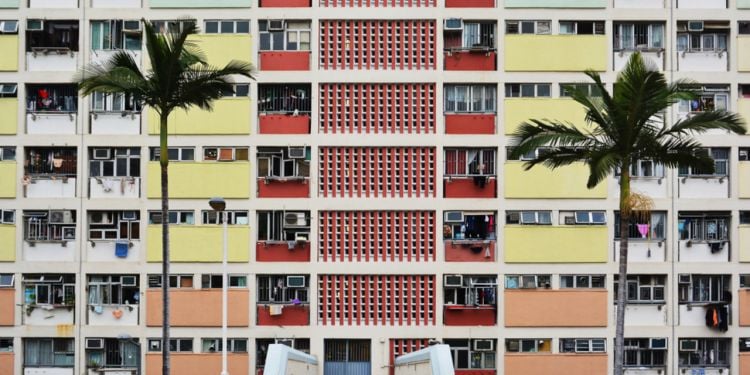
Accommodation in Hong Kong
The housing market in Hong Kong is somewhat unique. The city's small territory, its large ...
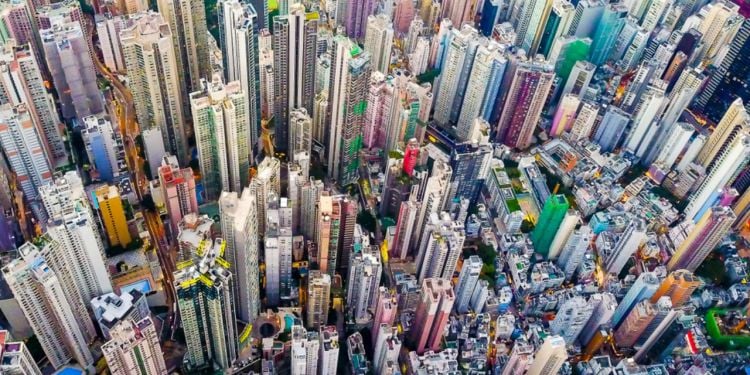
Buying a property in Hong Kong
Hong Kong is home to a large number of expats, many of whom call the city their second home. Thus, ...

Find your ideal home in Hong Kong
Explore real estate listings in Hong Kong to buy or rent your next home.
Study
Universities, training courses, student visas, registration procedures: all you need to know about being an international student in Hong Kong.
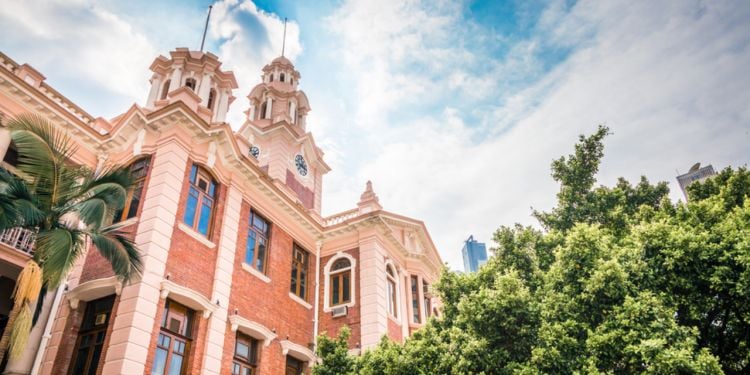
Study in Hong Kong
A dynamic, international city and meeting point for different cultures, Hong Kong is also one of the world's leading financial centers and a ...
Health care
Understanding the healthcare system in Hong Kong: public and private health system, health insurance...

The healthcare system in Hong Kong
As an expat, it can be overwhelming to navigate a new healthcare system in a foreign country. This ...

Accidents and emergencies in Hong Kong
Accidents and emergencies can happen at any time, and it's important to be prepared for them, ...

Health insurance for expats in Hong Kong
Protect your health during your expatriation.
Bank
Navigate the banking system in Hong Kong: how to choose a bank and open a bank account.
Tax
All you need to know about income tax, the tax system and filing your taxes as an expat in Hong Kong.

The tax system in Hong Kong
Hong Kong is known as a tax haven for both professionals and businessmen. While the general perception is that you can live, work and run a business ...
Transport
From public transports to renting or buying a car, explore the best options to getting around in Hong Kong.
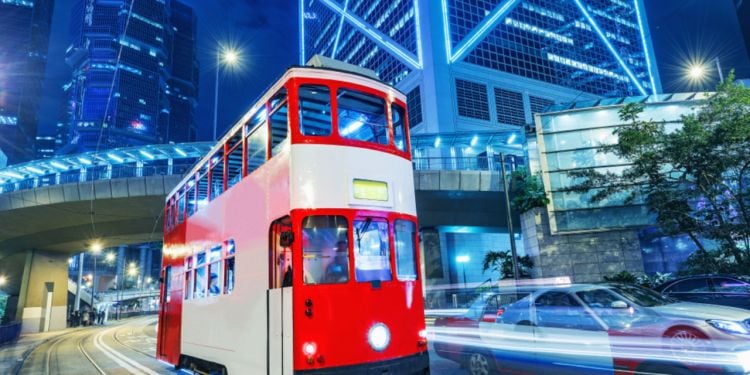
Travelling around Hong Kong
Bus, tram, subway, taxi, ferry... Are you still wondering how to explore Hong Kong? Indeed, you can choose from different means of transport if you ...
Driving
Essential information on driving requirements in Hong Kong, driver's license exchange and international permits.

How to drive in Hong Kong
While driving is generally a great way to get around, Hong Kong has one of the highest concentrations of vehicles in the world. This means frequent ...
Removal
Moving to Hong Kong? Find useful information and tips to organize your move.

Relocating to Hong Kong
If you have decided to relocate to Hong Kong, take enough time to choose your removal company. This ...

Moving with your pet to Hong Kong
If you are planning a long-term stay in Hong Kong, you may want to bring your pets with you. The ...

Free quotes for your move
Get the best offers to easily organize your relocation to Hong Kong.
Communications
Internet and phone providers, plans, and everything you need to stay connected in Hong Kong.

Phones and internet in Hong Kong
Staying connected to friends and family when living abroad is essential. Fortunately, this won't be difficult in Hong Kong. The city is ...
Leisure
Sports, leisure, culture and other activities expats can enjoy in their spare time in Hong Kong.
Everyday life
Eager to discover what life in Hong Kong looks like? Here's a taste.

Lifestyle in Hong Kong
Wondering what life is all about in Hong Kong? A mixture of old traditions, modernism and openness to other cultures, it's a fascinating ...
Articles from the magazine

"Expats": A gripping drama series set in Hong Kong
In early 2024, the Prime Video streaming platform debuted “Expats", a drama series based on the book by Janice Y. K. Lee. It portrays the lives of three women from diverse backgrounds who are linked by a singular drama: Margaret, Hilary, and Mercy, each facing unexpected and traumatic events that upheave their existences.
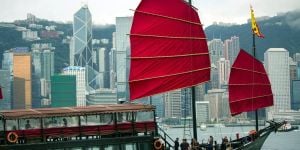
Beth in Hong Kong: "I love the people and the culture"
Born and raised in Chicago, Beth moved to Hong Kong after graduating from university to get to know her fiancé's family. She is currently teaching English at a language center while doing freelance writing online.

Julia: "Everything in Hong Kong is very fast-paced and efficient"
Julia comes from Brazil. Following her stay in Colombia, she decided to look for new opportunities abroad. She landed in Hong Kong 6 years ago for an internship. Nowadays, she works for a non profit organization and enjoys the nature during her free time.

Bookworm Vagabond
My name is McKenzie and I am from Florida in the United States. I am a history teacher who always wanted to be combine my passion for education with a longing to live abroad. I found a way!

Freelancer Expat: Double Delight
Expatriation involves a great deal of adventure and uncertainty. Freelance work too, comes with a lot of freedom, flexibility, and creativity — all leading to an unconventional reality that can make or break you. Moving abroad is already a challenge when there's a solid employment contract waiting for you, let alone when there's no company, support network of colleagues, and steady income. But you know with all your heart that freelancing is what you want to be doing, and you want to be doing it abroad. Here are a few things to consider before you pack your laptop.

Expatriation in Hong Kong: The end of an era?
The fall is non-negligible. In its latest report, ECA International (Employment Condition Abroad) ranked Hong Kong as the 93rd most attractive city for expatriates. The city stood at the 50th place in the 2018-2019 edition of the ranking. Hong Kong is far behind other major Asian cities: Tokyo is 3rd. Singapore keeps its 1st place (2019-2020 figures). How to measure the real impact of the current context - political crisis, coronavirus - on the attractiveness of Hong Kong? What effects on the attractiveness of Hong Kong to investors, professionals and other expatriates?
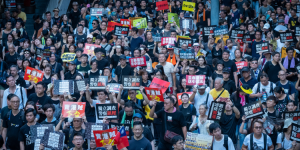
Expats in Hong Kong: Are they considering a return home?
It has been six months since the unrest started in Hong Kong. Caused by disagreements over an extradition bill, confrontation between protesters and the police have been never-ending since February in the region. Does that mean expats could be considering leaving Hong Kong? It does not look like it just yet…

Countries where the Covid risk still exists
There have been rumors since the end of 2022. Then John Lee, the Special Administrative Area's (SAR) Chief Executive, confirmed the news. Hong Kong is finally back to "normality". The wearing of masks is no longer mandatory for Hongkongers. Still, the mask is still strongly recommended in high-risk areas. Hong Kong is one of many countries to go by this preventive statement, reminding their populations of the importance of keeping the good practices acquired during the COVID crisis. Because the health risk still exists, and no country is immune.

